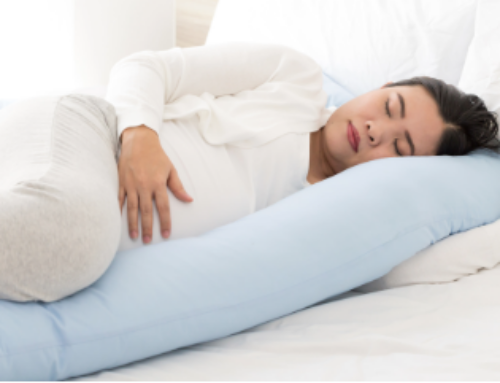Caffeine is a natural substance that can be extracted from plants. Natural sources of caffeine include coffee beans, tea leaves and cocoa beans. It also can be produced synthetically.
Caffeine is a type of drug that promotes alertness. These drugs are called “stimulants.” Caffeine acts as an “adenosine receptor antagonist.” Adenosine is a substance in your body that promotes sleepiness. Caffeine blocks the adenosine receptor to keep you from feeling sleepy.
Caffeine begins to affect your body very quickly. It reaches a peak level in your blood within 30 to 60 minutes. It has a half-life of 3 to 5 hours. The half-life is the time it takes for your body to eliminate half of the drug. The remaining caffeine can stay in your body for a long time.
Coffee accounts for 54% of the caffeine consumption in the world. Tea accounts for another 43%. On any given day, about 85% of Americans use caffeine products. The average daily consumption of caffeine by adults in the U.S. is about 300 mg per person. This is about three times higher than the world average. But it is still only half of the caffeine consumption in heavy tea-drinking countries such as England and Sweden.
Caffeine is a product that has both positive and negative effects. These effects depend on the amount of caffeine you consume and when you consume it:
Positive Effects of Caffeine
Caffeine is considered a moderately effective alerting agent. It can have a positive effect on your reaction times, mood and mental performance. A normal dose of caffeine is about 50 mg to 200 mg.
Caffeine works best when you take it on an intermittent, off-and-on basis. Higher doses can have much more potent effects. A dose of 500 mg or 600 mg of caffeine can affect you much like a low dose of an amphetamine. When you consume caffeine daily, it is less effective as a stimulant. Your body builds up a tolerance to it.
Negative Effects of Caffeine
Caffeine can have a disruptive effect on your sleep. The most obvious effect of the stimulant is that it can make it hard for you to fall asleep. One study also found that caffeine can delay the timing of your body clock. These effects will reduce your total sleep time. Caffeine also can reduce the amount of deep sleep that you enjoy.
The effects of caffeine can occur even when you consume it earlier in the afternoon or evening. One study found that consuming caffeine 6 hours before bedtime reduced total sleep time by 1 hour. These effects also can be stronger in older adults. It takes their bodies a longer time to process caffeine. Regularly consuming high doses of caffeine may cause complications during pregnancy.
At high doses, caffeine can produce these common side effects:
- Diarrhea
- Sweating
- Nausea
- Increased heart rate
- Increased breathing rate
- Muscle tremors
Withdrawal symptoms can occur when you stop taking caffeine after using it regularly for a long time. These symptoms include:
- Headaches
- Sleepiness
- Low energy levels
- Bad moods
The FDA is collecting reports of adverse events that have occurred in people who took products marketed as “energy drinks” or “energy shots.” The FDA cautions consumers that products marketed as “energy shots” or “energy drinks” are not alternatives to sleep.
Some retailers sell pure caffeine powder in bulk. It is marketed as a dietary supplement. Parents need to be aware that many teens and young adults take it for an energy boost. Others consume caffeine powder in an attempt to enhance performance or lose weight.
Caffeine powder is highly potent, and a safe serving size is extremely small. It is nearly impossible to measure caffeine powder accurately in the home. As a result the risk of an accidental, lethal overdose is high.
Caffeine Summary
Caffeine has both positive and negative attributes. It can be very effective for improving your concentration, alertness and energy. But these effects can be brief if you consume high doses of caffeine on a daily basis. Caffeine also can have a negative effect on your sleep. It can reduce the quantity and quality of your sleep. These effects can occur even when you are unaware of them.
Caffeine Recommendations
Like most substances, you should use caffeine in moderation. These are some general guidelines for you to follow:
- You should limit your caffeine consumption to no more than about 300 mg to 400 mg per day. This equals about three to four cups (8-oz) of coffee.
- Women who are pregnant or nursing should consume even less caffeine or avoid it altogether.
- Parents should limit the amount of caffeine that their children consume.
- People with high blood pressure or other heart problems should avoid high levels of caffeine.
- It is best if you avoid caffeine in the late afternoon and in the evening.
- The FDA and the American Academy of Sleep Medicine advise consumers to avoid powdered pure caffeine.
Caffeine Levels
Caffeine levels vary widely from one product to another. In particular, the caffeine content of coffee can be very unpredictable.

Coffee’s caffeine content depends on many factors. These include the type of bean that is used and how the coffee is prepared. In the same way, the size of a tea bag, number of tea leaves and brewing time can affect the caffeine level of a cup of tea.
Caffeine is added to many soft drinks. The U.S. Food and Drug Administration classifies caffeine as a substance that is “generally recognized as safe,” or GRAS. This means that caffeine is not regulated by the FDA as a food additive. It must appear as an added ingredient on a drink’s label. But the label does not need to show the amount of caffeine in the drink.
The following table will help you compare the caffeine levels found in a number of common products:
|
Product |
Serving Size |
Caffeine (mg) |
| Coffee | ||
| Coffee, brewed | 1 cup (8 oz) | 95 |
| Espresso | 1 oz | 64 |
| Coffee, instant | 8 oz | 62 |
| Coffee, brewed, decaf | 1 cup (8 oz) | 2 |
| Tea | ||
| Lipton Black Tea | 1 cup | 55 |
| Lipton Original Iced Tea | 16 oz | 50 |
| Tea, brewed | 1 cup (8 oz) | 47 |
| Lipton 100% Green Tea | 1 cup | 45 |
| Tea, instant, unsweetened | 1 cup (8 oz) | 26 |
| Lipton Brisk Tea | 12 oz | 9 |
| Tea, herbal | 1 cup (8 oz) | 0 |
| Energy Drinks | ||
| Monster | 16 oz | 173 |
| NOS | 16 oz | 160 |
| Rockstar | 16 oz | 158 |
| Full Throttle | 16 oz | 158 |
| Amp | 16 oz | 149 |
| Red Bull | 12 oz (16 oz equivalence) |
111 (148) |
| Red Bull | 8.4 oz (2 can equivalence) |
77 (154) |
| Sodas | ||
| Pepsi One | 12 oz | 54 |
| Mountain Dew | 12 oz | 53 |
| Mello Yellow | 12 oz | 52.5 |
| Diet Coke | 12 oz | 46.5 |
| Pepsi | 12 oz | 37.5 |
| Diet Pepsi | 12 oz | 36 |
| Coca Cola Classic | 12 oz | 34.5 |
| Caffeine free Coke, Pepsi | 12 oz | 0.0 |
| Sprite, 7-Up | 12 oz | 0.0 |
| Medications | ||
| NoDoz | 1 tablet | 200 |
| Vivarin | 1 tablet | 200 |
| Extra Strength Excedrin | 2 tablets | 130 |
| Anacin | 2 tablets | 64 |
| Other | ||
| Chocolate chips, semi-sweet | 1 cup (6 oz bag) | 104 |
| Chocolate chips, milk chocolate | 1 cup | 34 |
| Baking chocolate, unsweetened | 1 square | 23 |
| Milk chocolate bar | 1 bar (1.55 oz) | 9 |
| Chocolate pudding, ready-to-eat | Snack size (4 oz) | 6 |
| Frozen yogurt, chocolate | 1 cup | 5 |
| Chocolate ice cream | 1 cup | 4 |
| Hot cocoa | 1 packet, 6 oz water | 4 |
| Chocolate syrup, fudge-type | 2 tbsp | 3 |
| Chocolate-chip cookie, packaged | 1 cookie | 1 |
Note: Caffeine levels are estimates based on both the USDA National Nutrient Database for Standard Reference and information provided by manufacturers.
Updated Jan. 29, 2018





